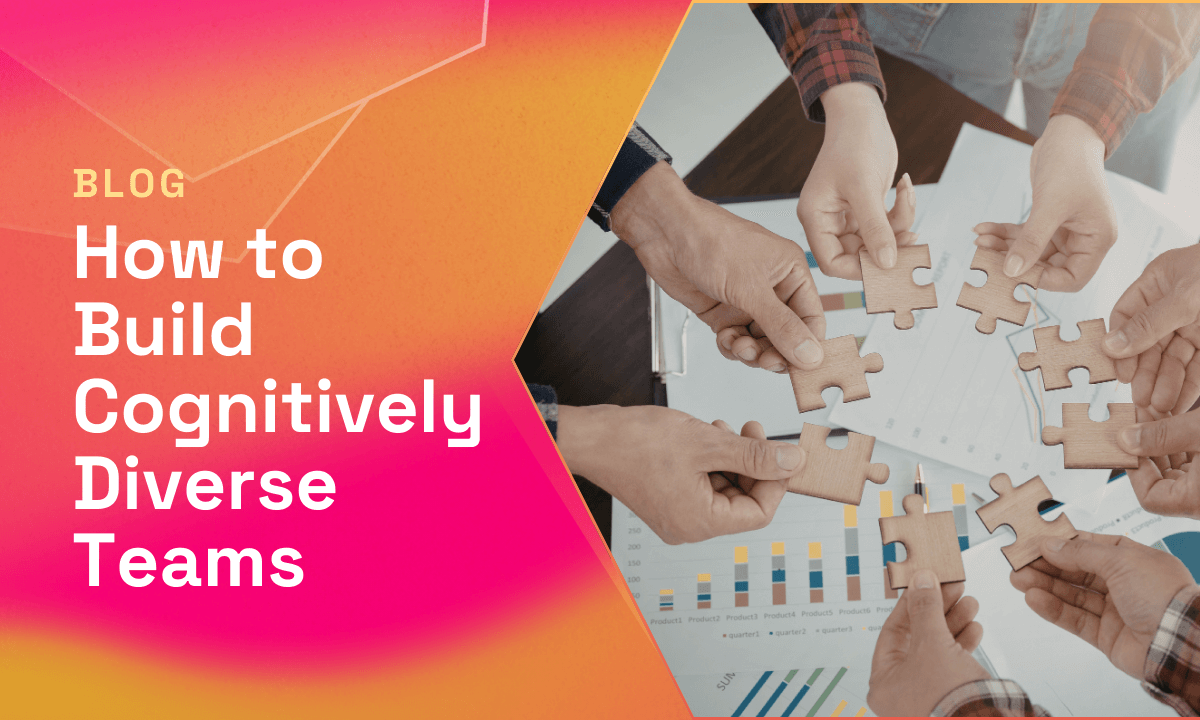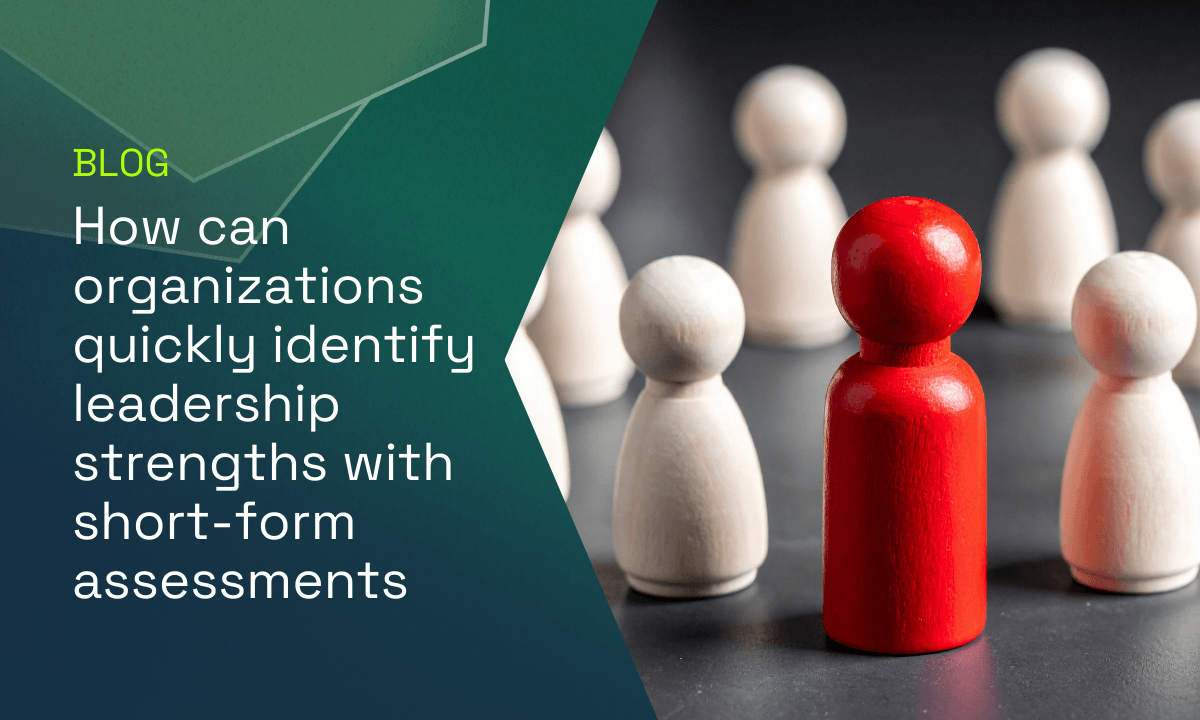J3P Healthcare Solutions is transforming healthcare with Deeper Signals

J3P Healthcare Solutions is a world leading consultancy that uses Deeper Signals’ innovative assessment suite to develop physicians and clinical leaders so that their teams and institutions deliver world-class patient care. Earlier this month, we caught up with J3P’s CEO, Alan Friedman.
Alan is a trusted advisor and coach to senior healthcare leaders. Using his expertise in personality science and I/O psychology, he and his team work directly with America’s leading healthcare institutions, hospitals, universities and clinics to improve their leadership teams and culture.
What is the J3P story?
J3P was born from an intersection between founder Alan Friedman’s personal family experience with clinicians, his previous professional experience in the medical device industry, and advanced education in Organizational Psychology and research methodology. What he saw time and again was smart people, well intended, but without the necessary skills to demonstrate emotionally intelligent behavior in order to best support patients and their families. It became obvious that physicians, nurses and other healthcare professionals love data, but often don’t have data to understand themselves. This insight is needed to develop leaders, teams, and organizations. He recognized the need to apply I/O psychology principles in the Healthcare space, and the positive impact it can have.
What are the biggest challenges for healthcare leaders? Are there differences between leaders in corporate America and healthcare institutions?
According to Alan, there are a lot of similarities. People are people. However, there is a meaningful gap with profound implications for how people are being treated in healthcare. The gap exists within traditional HR functions. There is a disconnect between the traditional corporate mentality and what is needed for physicians and nurses who are dealing with high stress situations on a daily basis. He says we simply can’t take the same approach in a business environment that we take in healthcare environment. The problem is, the people who need this work (self-awareness, coaching, leadership development) the most, often don’t have access to it. The resources aren’t allocated appropriately where the need is the greatest.
A common challenge is that decision makers in healthcare typically take people who are phenomenal individual contributors (NIH funded, strong clinical outcomes, top of their class in medical school or residency, etc.) and promote them into leadership positions without selecting for the right leadership traits or providing the right training, then wonder why they aren’t successful.
What are the core soft skills or competencies needed the most in Healthcare right now?
From Alan’s perspective, the most successful leaders and teams right now are those who express vulnerability, act authentically, and have a tendency to over communicate. Alan said there are two key traits healthcare professionals desperately need to maximize their success as leaders in the current climate: 1) Intellectual curiosity and 2) Humility, admitting when they’re wrong. Interestingly, the latter goes against traditional medical training where failure isn’t tolerated. Understandably, when dealing with well-being, life and death situations, there is less tolerance for error. However, when it comes to working with and leading others, mistakes happen, and what is usually more damaging, is when leaders don’t own up to it.
So how does J3P break down these barriers, and rewire the thought process?
They change the narrative. At J3P they focus on the individual as a human being, not a widget, or a Rockstar surgeon or researcher…as a person. Alan says the first step is building trust by helping healthcare leaders understand the J3P philosophy and approach. They explain that they think about these leaders the same way they think about their patients- focused on individual needs and care.
Typically, clinicians are in the caretaker role, but who is taking care of the caregivers? Alan says a major problem in healthcare is “we talk a good game”. As a society, we praise healthcare leaders as COVID heroes, concerned about their burnout and wellness, then fail to make the actual investment at the levels in which they are needed so these people truly understand that they matter. Talk is cheap without this investment. Out of all of J3P’s clients, those who doubled down and invested in their people during the pandemic are actually doing the best not only culturally but also financially.
J3P is not in the business of putting people in boxes. They focus more on helping individuals understand who they are at a very deep level, recognizing the nuances and complexities. J3P and Deeper Signals align on the fact that there is no “one size fits all” when it comes to personality profiles of success; we agree it is time to take a much more personalized, contextualized view, embracing differences, and focusing more on working together. With awareness and coaching, individuals can leverage different traits to achieve the same goals.
When working with leaders in a “hard science” field, does it take more education and persuasion to get them to invest in psychological or “soft science” resources?
Alan finds himself educating people on the misnomer of personality. Some don’t recognize the significance of understanding or developing personality traits, they don’t believe it’s something you can change, or they use it as an excuse for their behavior. He breaks down skepticism of personality assessment by asking this meaningful question: “Think of who you are at home and who have to be or want to be at work. Are they identical?” Typically, no, different behaviors are required of us. Our usual tendencies we wake up with, we can see that as our baseline personality. In order to be effective at work, we have to make changes in how we behave, not who we are. If we don’t understand our baseline, we can’t change the specific behaviors to achieve more of what we want. Consequently, more of what we want for ourselves is also in line with what our organization wants from us. Win-win.
How does J3P integrate assessments and data to direct individual and team development journeys?
In the past, they would use traditional assessment technology, which was cumbersome and costly. Now the process is web-based, and there is no reason to invest so many resources in the process. Using tools like Deeper Signals Core Drivers, his team can get the same meaningful information in less time and in a more engaging way, at scale. Instead of reserving assessment and development exclusively for top levels, J3P is now able to direct individual and team development journeys across entire organizations.
Alan explained, “we want to democratize the development experience, create a more cognitively diverse workforce, a broader pool of candidates to promote into leadership positions, while keeping it budget neutral”. At healthcare institutions like Johns Hopkins, Cedar Sinai, NYU, Yale, Mass General, and more, J3P is leveraging scalable technology from an assessment and development perspective to drive the organization forward. He said, “if you scale leadership development, you see a compounding effect; it’s more systemic.”
Changing culture starts with each individual, it doesn’t happen after attending a organization-wide webinar. According to Alan, you “give people the insights to understand themselves, tie that to the things that matter to them, link that to the organizational outcomes required, and then get people to change because it is on their terms, not the organization’s. Once the behavior starts to change, the culture follows. If you don’t focus on your people and meet them where they’re at, it’s basically a big exercise in futility, which is why 70%+ of these efforts fail, and in healthcare it’s probably even higher.” Bottom line: instead of macro, focus on micro.
What’s next for J3P?
Alan and his team are excited about taking what J3P has built over the last decade and building on it to have a much more systemic impact on healthcare systems. They plan to utilize strategic partnerships, like with Deeper Signals, to create important, meaningful change in healthcare, positively impacting everyone from leaders to physicians to patients.
To learn more about J3P and how discover the Core Drivers is raising awareness and improving healthcare outcomes, visit their website. If you’re interested in becoming a distributor of Deeper Signals’ innovative assessment suite, schedule a demo today.




























